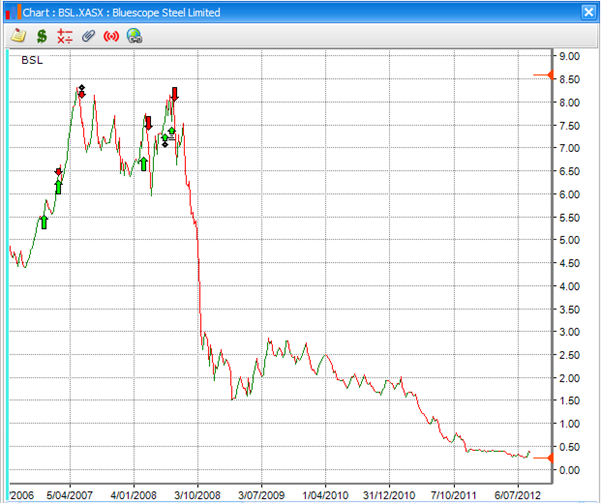Did you ever have the feeling that the so called experts are really not experts at all? If you said yes, then you’re not alone.
The stock market is full of so called experts who believe they can predict the future and tell you what will happen next in the market. But history tells us that even the most famous and experienced get it wrong from time to time.
Take the following quotes from industry leaders and legends that at one point in time got it so very wrong.
“Who the hell wants to hear actors talk?”
– H.M. Warner, Warner Brothers, maker of silent movies, 1927
“There is no reason anyone would want a computer in their home.”
– Ken Olson, President, Chairman and Founder of Digital Equipment Corp, maker of big mainframe computers arguing against the PC, 1977
“We don’t like their sound, and guitar music is on the way out anyway.”
– President of Decca records, rejecting The Beatles after an audition, 1962
“Computers in the future may weigh no more than 1.5 tons.”
– Popular Mechanics, “predicting” the relentless march of technology, 1949
“The horse is here to stay, the automobile is only a fad.”
– Advice of President of Michigan Savings Bank to Horace Rackham, lawyer for Henry Ford 1903
“The Americans have need of the telephone, but we do not. We have plenty of messenger boys.”
– Sir William Preece, Chief Engineer, British Post Office, 1878
“Stock prices look like they have reached a permanently high plateau.”
– Irving Fisher, Yale University Professor of Economics, 1929, (two weeks later, the stock market crashed and the Great Depression started)
“I think there is a world market for maybe five computers.”
– Thomas Watson, Chairman IBM, 1943
Experts do exist but they can be just as wrong as anyone else, myself included. But there is a point to this.
Rather than basing investment decisions on the subjective noise and the opinions of experts, I would encourage you to build a series of investment processes that deliver consistency and objectivity.
In a non-linear environment such as the stock market, achieving consistency and objectivity is absolutely essential. Yet the great majority of traders and investors are inconsistent and subjective —exactly opposite to how they should approach investing. Knee-jerk reacting to outside influence, noise, news or a ‘story’ about a stock that takes an investor off the path of their planned strategy, is being inconsistent and subjective.
To achieve consistency means to ensure that your trade entry reasons are researched, tried and tested and constant. They are only subject to change following additional research, not subject to change after hearing a convincing ‘story’ from a broker, friend or newsletter. Using well defined entry criteria are there to avoid EXACTLY this situation of being influenced by outside ‘noise’.
To achieve consistency means to ensure that your trade exit points and the risk that is placed in EVERY position is consistent. This will translate into ensuring that the investor does NOT hold onto positions that can destroy their portfolio and their investing confidence like, Babcock & Brown, One-Tel, HIH Insurance, ABC Learning, Bluescope, etc.
Here’s an example of Bluescope with the SPA3 exit

To me, investing is a business that requires self-control, process, persistence, patience, objectivity, an edge, discipline, desire, curiosity, consistency, confidence and attention to detail and you will go a long way to achieving these desired objectives with tools, rules and a trading plan.
If you can achieve the above the ‘noise’ from experts will no longer be part of your life.


